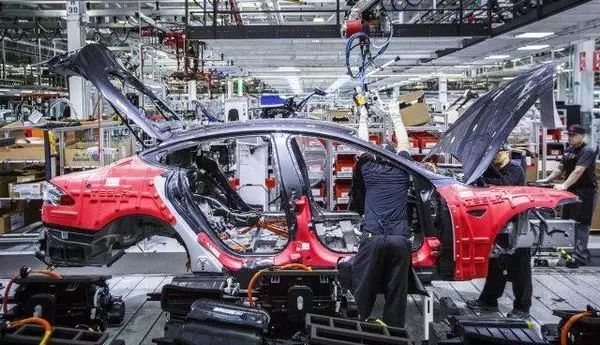As the company has not yet realized profitability for 15 years, Tesla, the US senior electric vehicle manufacturer, has received a lot of attention recently. Some analysts even said that Tesla now consumes 6,500 US dollars per minute. If there is no additional financing this year, It may be difficult for the company to reach 2019. On May 8, according to the latest Reuters news, Tesla has changed the terms of the loan agreement with the bank to allow it to use the Fremont automobile factory in the United States as collateral. Some analysts believe this The move is to stabilize the liquidity of the company. According to a regulatory filing submitted by Tesla on Monday, only $543 million of the US$1.8 billion in credit lines owned by the electric car manufacturer is available, and banks will review and look at their willingness to lend. The amount of money. “Although it is not yet clear what the specific reasons for Tesla’s move are, we suspect that with the massive cash consumption coming in 2018, the bank has asked Tesla to provide additional guarantees to maintain its $1.8 billion. "A loan," said research analyst CreditSights analyst in a report, "The bank is also trying to protect itself." According to sources inside Reuters who quoted insiders, the amendment did not come from the bank's request but was decided by Tesla. There is no doubt that the Fremont plant is a valuable asset that Tesla can currently provide to banks as collateral. This Tesla plant in California, which covers an area of ​​5.3 million square feet, is at the same time the production site for the mass market compact car Model 3, which is considered to be the key to Tesla's profitability. Tesla is "difficult" to increase the production capacity of the Model 3 models. In early April, in order to enhance investor confidence, Tesla stressed that the Model 3 doubled its production capacity in the first quarter of this year, and it is expected that the production capacity will reach 5,000 vehicles per week in the second quarter, that is, the annual production capacity will reach 250,000 vehicles. At the end of the first quarter, the actual single-week output of the Model 3 reached 2020. Although it exceeded 2000 units, it was still less than the company's previously expected 2,500 units per week. "Tesla will continue to burn money in the next few years," said Scott Roberts, head of high-yield investment at investment firm Invesco. After consecutive losses in the previous quarters, Tesla CEO Elon Musk promised investors that the company will turn a profit in the third quarter. At the same time, he also stressed that Tesla does not need additional financing, but this statement apparently did not "take credit" on Wall Street, most investors and analysts believe that Tesla will raise more funds by the end of this year. At present, Tesla’s capital structure includes convertible bonds, junk bonds and bank credit. CreditSights said that in light of the company’s assets, it can actually make some other choices. Previously, Tesla’s credit agreement with nine banks led by Deutsche Bank was based on accounts receivable, inventory, and equipment as collateral, and Tesla could provide other valuable assets, such as those in Nevada. Gigafactory factory or its intellectual property to get extra cash. In fact, the new round of financing may be costly. Last year, Tesla had sold $1.8 billion worth of junk bonds for the smooth production of the Model 3. But now, the price of the bond has plummeted to 87% of its face value, yielding 7.7%. "Seeing such high-value assets as Fremont's factories being mortgaged may make investors more cautious," CreditSights said. "The more assets that are dragged down, the more problems will arise." Wenzhou Fonan Automotive Electronics Co., Ltd. , https://www.fonansensor.com